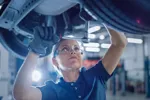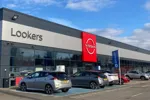He is determined to improve the proposition for consumers, but some experts are less convinced. They believe that price harmonisation is likely to mean vehicles in cheaper countries becoming more expensive, rather than those in the pricier areas, like the UK, becoming cheaper.
French carmakers have already signalled their intentions by raising prices in Denmark, one of Europe's cheaper countries, by up to 6.5 per cent. PSA Peugeot Citroen has also increased prices in other high-tax countries, including Greece and Finland.
Garel Rhys, head of automotive research at Cardiff Business School, hailed the commissioner's decision to delay scrapping the location clause, which will allow dealers to open outlets in any territory or European Union country, as a victory for the car lobby.
Consumers have not gained as much by the changes as the popular press would lead them to believe, Rhys adds. “You might say that it's 3-0 to the manufacturers - they have come out of this far better than they could've expected,” he says. “There could be a slight easing of prices, but not necessarily due to block exemption.”
The Consumers' Association, however, is convinced prices in the UK will drop by up to 20 per cent. It claims UK prices are still up to £2000 more than in the cheapest EU countries. “This marks a great victory for consumers as they have won the car price battle,” says Sheila McKechnie, Consumers' Association director.
Monti's decision to delay the location clause to 2005, a year later than expected, surprised analysts, but otherwise the changes to block exemption - which apply until the next review in 2010 - were largely as forecast. Dealers will choose between an exclusive relationship with the manufacturer or operating multi-franchise showrooms.
Those operating under exclusive distribution will be able to sell to independent resellers, such as supermarkets or internet retailers, and may also, if approached, sell to consumers based outside their territory.
Under selective distribution, dealers can open multi-marque showrooms and sell to all end users but not independent resellers. They may also open secondary outlets in other territories once the location clause is scrapped.
Alan Pulham, RMI franchised dealer director, says the rule changes are good news for dealers, but warns that the balance of power still rests firmly with the carmakers. “Dealers that are not financially secure will not want to risk rocking the boat by opening outlets in other areas,” he says. “Manufacturers will in most cases still be the dominant partner.”
The new rules attempt to give dealers greater clout by setting a five-year minimum term for franchise contracts. They also require manufacturers to provide clear and objective written reasons for terminating any agreement. Rhys says the changes have shifted the boundaries a little in dealers' favour, but that carmakers were still in charge.
“But dealers can be happy with the changes - they will be at the centre of car retailing for some time,” he adds. “It's for them to lose the market, not for others to take.”
But Rhys rules out widespread movements by dealers into rival territories or into continental Europe, where exchange rate fluctuations will make ventures high risk.
Carmakers are hoping the location clause might be retained if the new block exemption regulations are seen to have the desired effect. One source points out that companies like Nissan and Peugeot, which operate the most efficient plants in Europe, are struggling to make money, while many dealers are announcing record profits.
The Society of Motor Manufacturers and Traders, which believes scrapping the clause will endanger out-of town dealerships and rural outlets, says the EU now has a better understanding of how the motor industry works.
“While the dialogue over block exemption has been raging in the public eye, consumers are still buying cars from franchised dealers in record numbers,” adds an SMMT spokesman.
The new block exemption regulations separate sales from aftersales. Dealers can now choose to concentrate on car retailing and sub-contract out the service/repair side of the business, but few are expected to take this option as aftersales offers the best margins and helps ensure long-term customer loyalty.
However, they face more competition from independents which will be able to service and repair any car as long as they meet manufacturers' quality criteria. Independents will also be able to access full technical and repair information and can no longer be excluded from manufacturer training.
The Consumers' Association claims this increase in competition will result in lower service/repair prices of up to 30 per cent, but independents will now have to invest in the level of equipment and facilities offered by franchised dealers. This will force up their cost base, resulting in a small downwards price adjustment only. Irrespective of the impact of the new block exemption regulations, cross border trade is already rising steadily, particularly in the UK. Independent monitor CarPrice-Check.com claims dealers have as many as 6000 imported cars at their showrooms at any given time and says this figure could rise to 9000 during the last weekend in August in preparation for the September plate-change.
Steve Evans, CarPriceCheck chief executive, says car supermarkets, internet retailers and traditional dealers have been bulk ordering more and more popular models from the continent before actually finding a UK buyer for them. “Traditional dealers have been quick to realise that import sales need to form part of their business even before the EU changes to the way cars are sold across the continent,” he adds.
Meanwhile, a European Commission study has found that the introduction of the Euro has not helped to close the gaps in car prices across Europe as expected. Pre-tax prices vary by up to 30 per cent, said Monti, which left “significant room for improvement”. Outside eurozone, the UK remains the most expensive place for more than half of the models assessed.















Login to comment
Comments
No comments have been made yet.